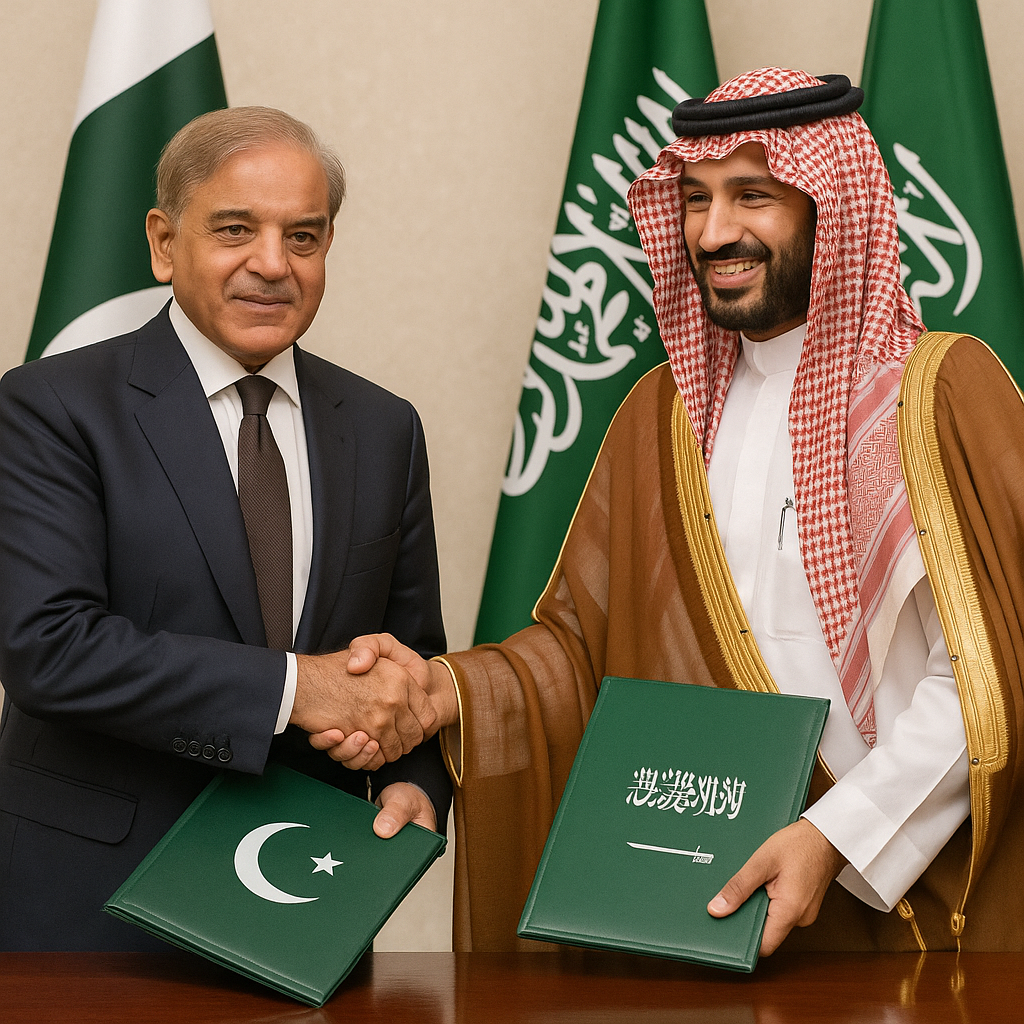Islamabad/Riyadh – Pakistan and Saudi Arabia have signed a landmark Strategic Mutual Defence Agreement, marking one of the most significant upgrades in bilateral security cooperation in decades. Defence Minister Khawaja Asif confirmed that the agreement leaves the door open for other Arab nations to join the pact, describing it as a defensive arrangement similar to NATO.
A Landmark Security Pact
The agreement, signed at Al-Yamamah Palace in Riyadh by Prime Minister Shehbaz Sharif and Saudi Crown Prince Mohammed bin Salman, declares that any aggression against one country will be treated as an attack on both. The joint statement emphasized the shared commitment of Pakistan and Saudi Arabia to peace, regional stability, and collective defence.
Defensive, Not Aggressive
Speaking on Geo News, Khawaja Asif clarified that the pact is not aggressive in nature but is designed for mutual protection. He added that Pakistan’s full defence capabilities, including its nuclear assets, remain safeguarded under the pact, while reaffirming Pakistan’s status as a responsible nuclear state.
Scope for Arab Nations
Asif highlighted that the agreement does not restrict participation from other Arab countries. He stressed the importance of Muslim nations uniting for regional security, noting the vulnerabilities of the region over the last 40–50 years.
Longstanding Military Cooperation
Pakistan has maintained military cooperation with Saudi Arabia since 1967, including training programs, advisory roles, and the deployment of Pakistani troops on Saudi soil. The new pact formalises this relationship, transforming decades of cooperation into a binding defensive framework.
Strategic and Economic Benefits
For Pakistan, the defence pact strengthens its role as a key security partner in the Muslim world while also ensuring much-needed Saudi investment at a time of economic challenges. For Saudi Arabia, it provides additional security against threats from Iran, Houthi militias, and growing regional instability, particularly following Israel’s recent escalation in the region.
Afghanistan Concerns
In a separate statement, Khawaja Asif described Afghanistan as a “hostile country,” accusing it of allowing its territory to be used for terrorism inside Pakistan. He urged clarity on the issue, noting Pakistan continues to face security threats from groups like the TTP and BLA.
Regional Significance
Analysts view the agreement as a turning point in Pakistan-Saudi relations, establishing a joint defensive umbrella at a time of heightened Middle Eastern tensions. It signals a shift toward collective Arab security arrangements and reinforces Pakistan’s standing as a pan-Islamic defence partner.




